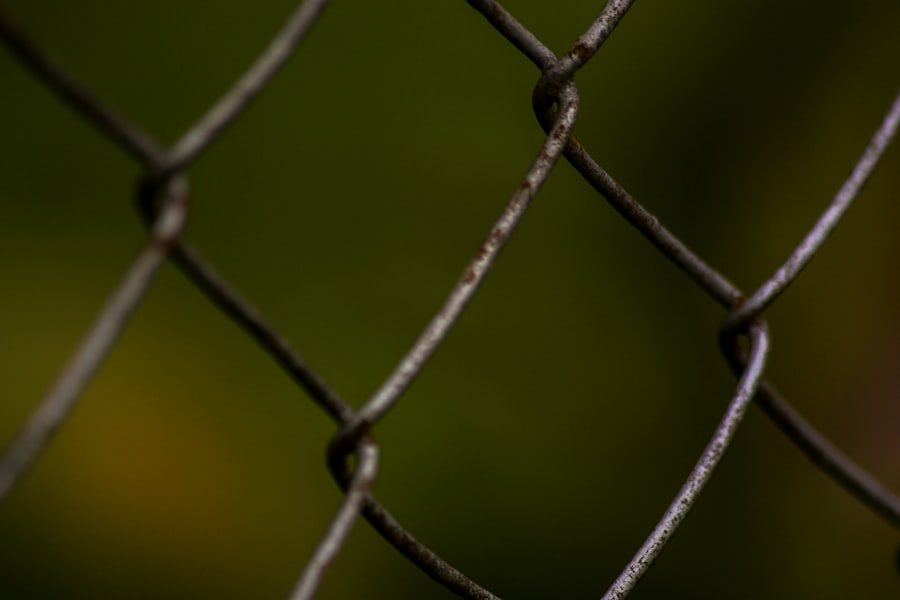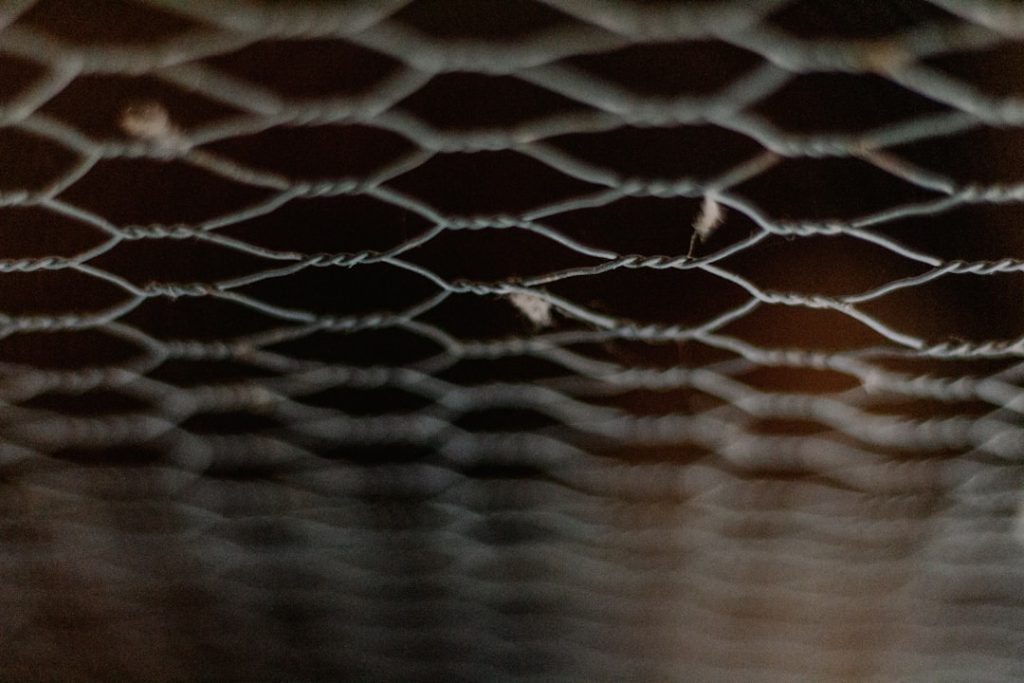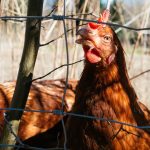Chickens are social creatures with innate instincts to roam, forage, and explore their environment. They exhibit curiosity but can be easily startled by sudden movements or loud noises. Understanding chicken behavior is essential for constructing a secure pen and preventing escape attempts.
Chickens have a natural roosting instinct at night, necessitating a safe resting area. They can also display territorial behavior and may become aggressive if they feel threatened. These traits should be considered when designing their living space.
The foraging instinct in chickens is strong, driving them to spend considerable time searching for insects and plants. This exploratory nature may lead to escape attempts if their environment lacks sufficient stimulation. A well-designed pen should provide ample space and enrichment activities to satisfy their natural behaviors.
By comprehending chicken behavior, owners can create an enclosure that addresses their instinctual needs while ensuring safety and security. This approach helps maintain content and healthy chickens within their designated living area.
Table of Contents
Key Takeaways
- Chickens are social animals and have natural instincts to explore and forage, so understanding their behavior is crucial for keeping them secure and happy.
- Building a secure chicken pen with sturdy fencing and a covered top is essential to protect chickens from predators and prevent them from escaping.
- Clipping the wings of your chickens can help prevent them from flying over the fence and escaping the pen.
- Providing enough space and entertainment, such as perches and toys, in the pen can keep chickens occupied and reduce the likelihood of them trying to escape.
- Using deterrents like motion-activated sprinklers or reflective tape can help prevent chickens from attempting to fly out of the pen.
- Training your chickens to stay in the pen by rewarding them for staying inside and using positive reinforcement can help reinforce the boundaries.
- Regularly checking and maintaining the pen for any damages or potential escape routes is important for keeping chickens safe and secure.
Building a secure chicken pen
Choosing the Right Location
The first step is to select a location that is far from potential predators and provides sufficient space for the chickens to roam and forage.
Constructing a Sturdy Pen
The pen should be built with durable materials that can withstand the elements and keep predators out. It’s essential to ensure that the pen is properly secured with a roof or netting to prevent the chickens from flying out or predators from getting in. Additionally, the pen should have a secure door that can be locked at night to keep the chickens safe from predators.
Providing Adequate Shelter and Roosting Space
Another vital aspect of building a secure chicken pen is providing adequate shelter and roosting space for the chickens. This can include building a coop within the pen where the chickens can rest and lay eggs. The coop should be well-ventilated and provide enough space for the chickens to move around comfortably. It’s also important to provide nesting boxes where the chickens can lay their eggs in a safe and secure environment.
By building a secure chicken pen, you can create a safe and comfortable environment for your chickens to thrive.
Clipping the wings of your chickens

Clipping the wings of your chickens is a common practice used to prevent them from flying out of their pen. This involves trimming the primary feathers on one wing, which disrupts their balance and prevents them from achieving lift when they try to fly. It’s important to note that wing clipping should be done carefully and with proper guidance to avoid causing any harm to the chicken.
When done correctly, wing clipping can be an effective way to prevent your chickens from escaping their pen while still allowing them to roam and forage on the ground. It’s important to understand that wing clipping is not a permanent solution and will need to be done regularly as the feathers grow back. Additionally, wing clipping should be done in a way that does not cause any pain or discomfort to the chicken.
It’s also important to monitor the behavior of the chickens after wing clipping to ensure that they are not experiencing any stress or discomfort. By clipping the wings of your chickens, you can prevent them from flying out of their pen while still allowing them to enjoy their natural behaviors on the ground.
Providing enough space and entertainment in the pen
Chickens require enough space and entertainment within their pen to keep them happy and content. Providing enough space allows the chickens to roam, forage, and exercise, which is essential for their physical and mental well-being. The pen should be large enough to accommodate the number of chickens you have and provide ample space for them to move around freely.
Additionally, providing entertainment such as perches, dust baths, and hanging treats can help keep the chickens stimulated and engaged. It’s important to provide different levels within the pen, such as perches or platforms, where the chickens can roost and observe their surroundings. This not only provides entertainment but also gives them a sense of security and control over their environment.
Additionally, providing dust baths with sand or diatomaceous earth allows the chickens to engage in natural behaviors such as dust bathing, which helps keep their feathers clean and free from parasites. By providing enough space and entertainment within the pen, you can ensure that your chickens are happy, healthy, and content.
Using deterrents to prevent flight
Using deterrents is another effective way to prevent your chickens from flying out of their pen. This can include installing barriers such as netting or wire mesh over the top of the pen to prevent the chickens from escaping. Additionally, using visual deterrents such as scarecrows or reflective objects can help deter the chickens from attempting to fly out.
It’s important to regularly inspect the pen for any potential escape routes and take necessary measures to block them off. Another effective deterrent is using natural predators such as dogs or cats to patrol the perimeter of the pen. The presence of these predators can help deter the chickens from attempting to fly out by creating a sense of danger.
It’s important to ensure that these predators are well-trained and do not pose any harm to the chickens. By using deterrents, you can create a secure environment within the pen that prevents your chickens from flying out while still allowing them to roam and forage freely.
Training your chickens to stay in the pen

Positive Reinforcement Techniques
Providing positive reinforcement is an effective way to train your chickens. This can be done by offering treats or praise when they stay within the pen. You can also use training techniques such as clicker training or target training to teach the chickens to respond to specific cues or commands.
Boundary Setting and Expansion
Another effective training method is to use barriers such as temporary fencing or electric poultry netting to create boundaries within the pen. By gradually expanding these boundaries over time, you can train the chickens to stay within a certain area without feeling confined or restricted.
Monitoring and Adjustments
It’s essential to monitor the behavior of the chickens during training and make adjustments as needed to ensure they are comfortable and not experiencing any stress. By training your chickens to stay in the pen, you can create a secure environment that allows them to roam and forage while staying within the boundaries of the pen.
Regularly checking and maintaining the pen
Regularly checking and maintaining the pen is essential for ensuring that it remains secure and safe for your chickens. This includes inspecting the perimeter of the pen for any potential escape routes or weak spots that need repair. It’s important to regularly check for any damage or wear and tear on the fencing, netting, or roofing of the pen and make necessary repairs as needed.
Additionally, regularly cleaning and disinfecting the coop and nesting boxes helps prevent the spread of disease and keeps the environment clean for your chickens. It’s also important to regularly monitor the behavior of your chickens within the pen and make adjustments as needed based on their needs. This can include providing additional entertainment such as new perches or toys, or adjusting the layout of the pen to create new areas for exploration.
Regularly checking and maintaining the pen ensures that it remains a safe and secure environment for your chickens to thrive. In conclusion, understanding the behavior of chickens is crucial when it comes to building a secure chicken pen and preventing them from flying away. By providing enough space, entertainment, using deterrents, training your chickens, and regularly checking and maintaining the pen, you can create a safe and comfortable environment for your chickens within the pen.
With proper care and attention, you can ensure that your chickens are happy, healthy, and content within their secure pen.
If you’re looking for tips on how to keep chickens from flying out of their pen, you may also be interested in learning about the best kind of coop for chickens. Check out this article for helpful information on creating a safe and secure environment for your feathered friends.
FAQs
What are some methods to keep chickens from flying out of their pen?
Some methods to keep chickens from flying out of their pen include clipping their flight feathers, adding a roof or netting to the pen, and providing enough space and entertainment to discourage them from wanting to escape.
How can I clip my chickens’ flight feathers?
To clip your chickens’ flight feathers, you will need sharp scissors or poultry shears. Carefully trim the primary feathers on one wing, being careful not to cut the blood feathers. This will make it difficult for the chickens to achieve lift and fly out of the pen.
What are the benefits of adding a roof or netting to the pen?
Adding a roof or netting to the pen can prevent chickens from flying out while still allowing them to have access to fresh air and sunlight. It also provides protection from predators and keeps the chickens safe and secure.
How can I provide enough space and entertainment for my chickens?
To provide enough space and entertainment for your chickens, make sure the pen is large enough for them to move around and engage in natural behaviors. You can also add perches, dust baths, and toys to keep them entertained and discourage them from wanting to escape.
Meet Walter, the feathered-friend fanatic of Florida! Nestled in the sunshine state, Walter struts through life with his feathered companions, clucking his way to happiness. With a coop that’s fancier than a five-star hotel, he’s the Don Juan of the chicken world. When he’s not teaching his hens to do the cha-cha, you’ll find him in a heated debate with his prized rooster, Sir Clucks-a-Lot. Walter’s poultry passion is no yolk; he’s the sunny-side-up guy you never knew you needed in your flock of friends!







